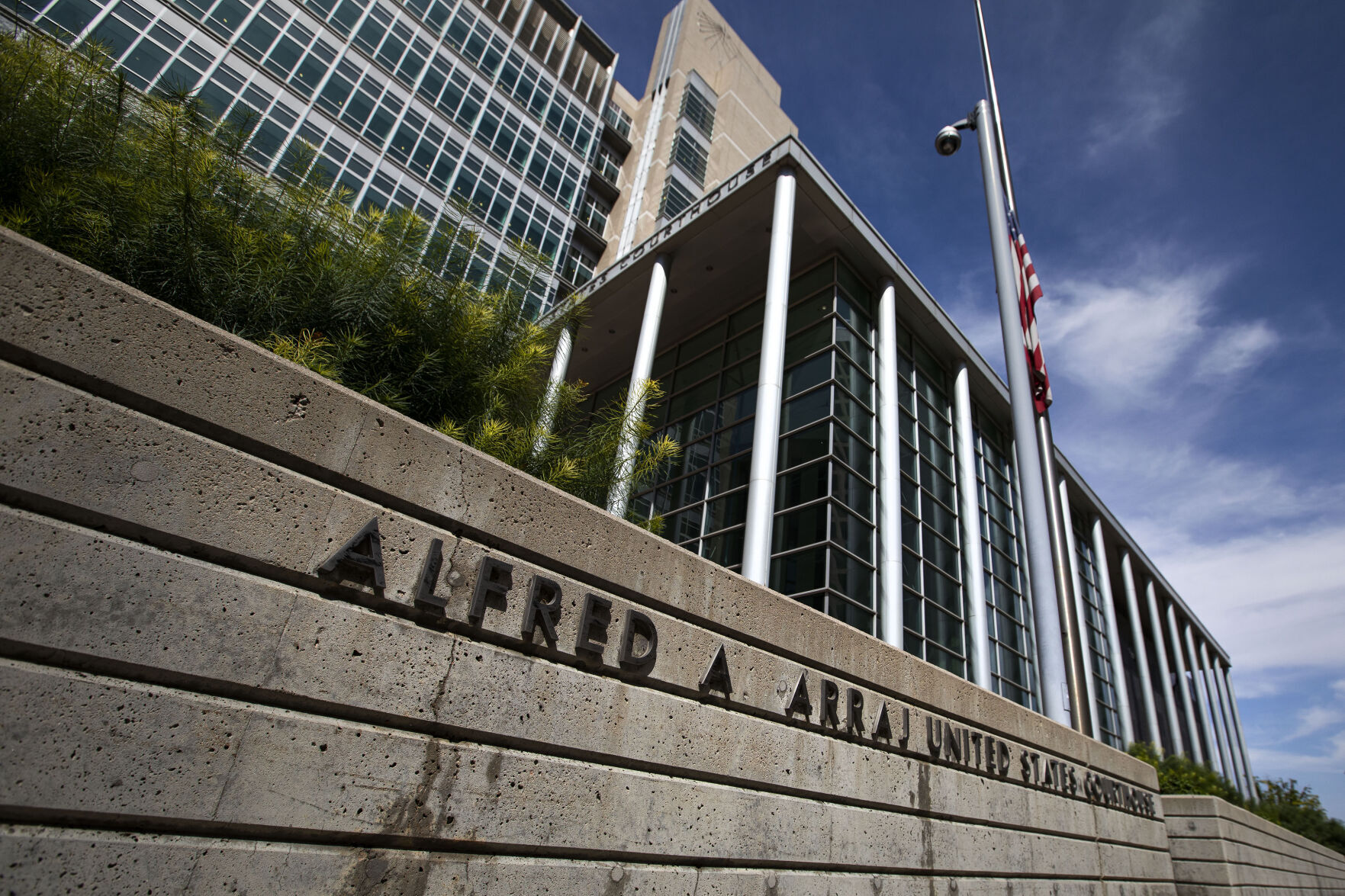Animal rights group continues legal quest in Colorado to ID elephant importer

An animal advocacy organization that has been trying for four years to obtain the identities of those who import African elephant parts and trophies failed on Wednesday to convince the lone holdout company to drop its insistence on anonymity.
Friends of Animals, which is based in Connecticut and has its western law office in Centennial, appeared in the courtroom of U.S. Magistrate Judge Michael E. Hegarty, alongside lawyers for an unnamed leather products company calling itself “Doe, Inc.” in court filings. Although Friends of Animals successfully received the identities of other elephant importers through an open records request to the U.S. Fish and Wildlife Service, the company has asked Hegarty to block the disclosure of its real corporate name.
Specifically, Friends of Animals is seeking an unredacted version of Doe’s Form 3-177 – the paperwork filed with FWS that contains information about trophy importers, the species being brought into the U.S. and its dollar value. But the nonprofit group’s attorney indicated to the magistrate judge he may now have deduced Doe, Inc.’s identity by other means.
The revelation had an immediate effect on the litigation.
“What are you seeking from this court?” asked Hegarty, who had scheduled the hearing to listen to arguments about Doe’s request for continued confidentiality. “If you already have the information that’s on the 3-177, do you believe you are entitled to the form itself?”
“I want to be clear here, your honor,” said Stephen R. Hernick, an attorney for Friends of Animals, explaining he is not positive he has successfully unmasked Doe. “We can’t independently verify the accuracy.”
After the lawyer for Doe, Inc. said he was unaware that Friends of Animals may know who submitted the Form 3-177 under dispute, Hegarty mused about a potential solution to the impasse that would eliminate the need for a court order.
“So, if you knew it were true and it was this submitter,” Hegarty asked Hernick, “if the submitter confirmed your belief, you have all you need?”
After pausing to consider, Hernick responded, “I think we might be able to have a discussion about that.”
Hegarty then called a recess for the lawyers to privately discuss whether Doe, Inc. would be willing to confirm Friends of Animals’ suspicions about its identity. After 30 minutes, the parties could not reach an agreement, but vowed to continue discussions.
The unusual case originated with a 2018 Freedom of Information Act request Friends of Animals made to FWS, asking for Form 3-177 information for African elephant imports. The group relies on such requests to track importation of trophies and other animal parts to the U.S. As reported by National Geographic, there is a “roaring trade” for elephant products, with imports of whole elephant skins increasing by nearly 10 times in the two-year period from 2014 to 2016.
The Humane Society of the United States and Humane Society International also estimated that 18,500 trophy hunters visit Africa annually, the vast majority of whom are American, where they kill roughly 105,000 animals, including those whose populations are vulnerable to extinction.
FWS sent Friends of Animals 847 pages of records in response to its request, but it redacted the names of importers on the Form 3-177s. With nearly all of the redactions, the government cited exceptions to the Freedom of Information Act that protect “personal privacy interests” of the importers. For one Form 3-177 – that of Doe, Inc. – FWS cited another exception for withholding confidential “commercial or financial information.”
Friends of Animals filed a federal lawsuit and in April 2020, Hegarty sided with the government’s decision to redact. He agreed it was plausible that releasing the names of people and companies that import elephant parts and trophies “could reasonably lead to harassment.”
Last year, the U.S. Court of Appeals for the 10th Circuit disagreed. A three-judge panel decided, by 2-1, the public’s interest in knowing about FWS’ handling of elephant importation outweighed the privacy of the importers. The panel’s majority waved aside the negative reaction to big-game trophy hunters who are photographed alongside the animals they kill.
“(I)f generally intemperate or hostile comments on Tumblr or Reddit were the test, it would probably negate the utility of this test in nearly every situation,” wrote Senior Judge David M. Ebel.
The appellate judges also agreed Hegarty wrongly relied on a secondhand statement about Doe, Inc.’s desire for confidentiality when he upheld the redaction of that company’s form. Although FWS provided the rest of the unredacted records to Friends of Animals within months of the 10th Circuit’s decision, Doe, Inc. still sought to keep its identity shielded.
“Any judge sitting in this chair should be concerned about not getting reversed twice by the 10th Circuit, so I want to get it right this time,” Hegarty cautioned at Wednesday’s hearing.
Doe argued it “goes to great lengths” to avoid revealing information about its elephant products’ importation, and it does not even disclose on its website information about the source of its leather.
“This is done intentionally to remove the possibility of competitors reverse engineering our supply chain relationships and competing more effectively against us,” the company’s CEO, identified as “John Doe,” said in a statement. “Likewise, in my experience, animal activist groups seek to reverse engineer our supply and sales relationships in an effort to damage and destroy our business, making them de facto competitors of ours.”
Doe, Inc. argued that because the species of elephant and country of origin of its products were already disclosed in the records request, revealing the company’s name would release damaging “confidential commercial information” into the public sphere. Friends of Animals countered that non-confidential information about a company’s name could not become confidential simply because other details about its products are publicly available.
FWS did not oppose the unmasking of Doe, Inc., noting it is already possible to identify the company by correlating other sources of information.
Although Hegarty did not ultimately hear arguments about maintaining Doe’s confidentiality, he indicated he is interested in a resolution.
“I want to decide matters that truly are at issue. That’s the core of the federal courts,” he said. “If I can find a way to avoid judicial resources and private resources and nonprofit resources from being used to litigate this case, plus an appeal to the 10th Circuit and another delay of a year or two, I should.”
The parties indicated they are open to discussing with each other the issue of Doe, Inc.’s identity and would submit a progress report to Hegarty in two weeks.
The case is Friends of Animals v. U.S. Fish and Wildlife Service.














